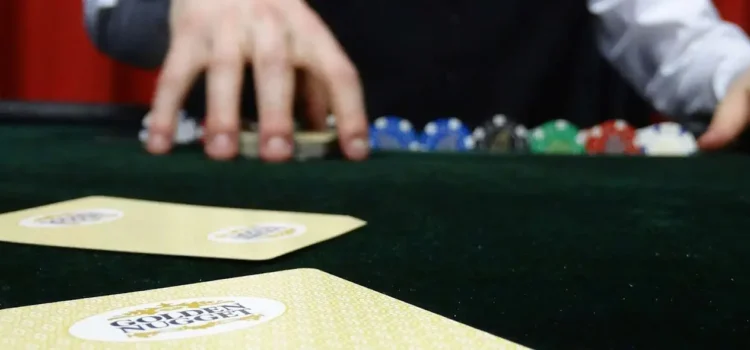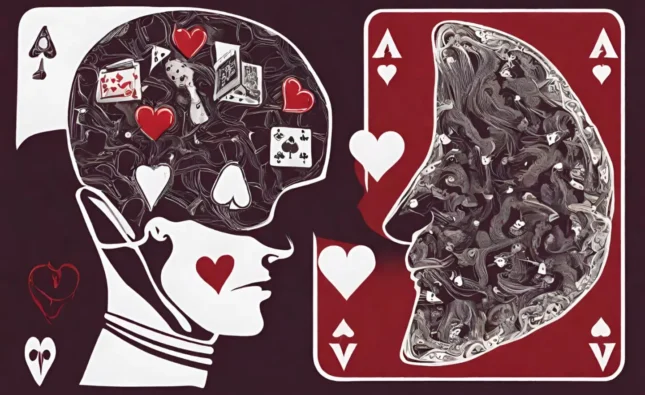
At The Party Team, we prioritize a fun and respectful poker experience during our charity tournaments. Here are some essential rules and etiquette to ensure everyone enjoys the game:
Fundamental Rules
- Confidentiality and Fair Play
- Players must protect the integrity of the game. This includes not disclosing the contents of live or folded hands and refraining from advising or criticizing other players until the action is complete. Additionally, players may not read hands that have not yet been tabled.
- Ethical Conduct
- Poker is an individual sport, and soft play (collusion between players) is strictly prohibited. Any form of chip dumping will lead to disqualification.
- Maintaining Etiquette
- Consistent violations of poker etiquette, such as unnecessarily touching other players’ cards or chips, causing delays, or excessive chatter, may result in penalties. Players are expected to act in turn and respect the flow of the game.
Tournament Structure
- Role of Floor Personnel
- Floor personnel are responsible for ensuring fairness and may make decisions based on the best interest of the game, sometimes prioritizing fairness over strict adherence to rules. Their decisions are final.
- Breaking Tables
- In flop games, players will be moved from the big blind to the least advantageous position when balancing tables. Players coming from broken tables assume the rights and responsibilities of their new positions, which may include receiving blinds or the button.
- Penalties and Disqualifications
- Penalties may be imposed for exposing cards with pending action, throwing cards off the table, or violating the one-player-to-a-hand rule. Repeat offenders face escalating penalties, which could include missed hands or disqualification.
- Break Times
- Breaks will be announced by the tournament director (TD). Players must complete the current hand before taking a break, and dealers will stay at the tables to secure chips during this time.
- Blind Structure and Payout Adjustments
- The blind structure and payout distributions may change depending on the number of participants and other factors, ensuring the tournament remains fair and meets scheduling needs.
Payouts
- Unless otherwise specified, tournament payouts will be made through pre-paid credit cards, which cannot be exchanged for cash but can be used at any vendor that accepts credit card payments.
General Tournament Rules
- Communication Devices
- Cell phones and other communication devices are not permitted at the table.
- Seat Assignments
- Seats will be randomly assigned to ensure fairness.
- Chip Visibility
- All chips must be visible at all times. Players cannot hide or transport their chips in a way that obscures them. Failure to comply may lead to forfeiture and disqualification.
- Pot Size
- Dealers will not count pots in no-limit games unless requested.
- Deck Changes
- Deck changes will be made at the discretion of the house, and players can only request a deck change if they notice a marked card.
- Official Language
- English is the only language permitted at the table.
- New Blind Limits
- New blind levels will take effect at the beginning of the next hand after they are announced by tournament staff.
- Chip Coloring-Up
- Chips may be colored up during play, but this will be officially done by the TD at designated times.
- Player Presence
- Players must be at their seats by the time hands are dealt to remain active in the game.
- Pending Actions
- Players must remain at the table if they have pending actions.
- Re-Buys
- Players intending to re-buy must do so before the next hand begins and must be completely out of chips to be eligible.
- No-Shows and Late Arrivals
- Players who arrive late may be blinded out until the end of the third round, and their chips will be moved to a vacant spot if necessary.
- Add-Ons
- Players may purchase add-on chips until the start of the fourth round, provided they have fewer chips than they started with.
Tournament Play
- Verbal Declarations
- Verbal declarations regarding bets are binding, while declarations about the contents of hands are not. Misrepresentations may incur penalties.
- Exposed Cards
- Exposing cards with pending action may lead to penalties, but the hand remains live.
- No Rabbit Hunting
- Players may not ask to see additional cards once they have folded.
- Odd Chips
- Odd chips will go to the high hand or, in the case of a tie, to the left of the dealer button.
- Face-Up Cards
- All cards will be revealed once a player is all-in and all betting is complete.
- Side Pots
- Side pots will be managed and split accordingly.
- Raising Methods
- Raises must be made clearly, either by placing the full amount in the pot at once or declaring the amount verbally before adding chips.
- String Raises
- String raises are not allowed, and dealers will ensure compliance with this rule.
- Showdown Procedures
- The player who made the last aggressive action must show first at the showdown.
- Playing the Board
- Players must reveal both cards when playing the board to claim part of the pot.
- Misdeals
- Misdeals occur if one of the first two down cards is exposed.
- Unprotected Hands
- If a dealer mistakenly kills an unprotected hand, the player has no recourse for recovering bets.
- Dead Button
- If the small blind is knocked out, the button will move to the empty seat, maintaining the structure of the blinds.
- Heads-Up Play
- In heads-up play, the small blind acts first.
- Calling for a Clock
- A player has one minute to act once a clock is called. If no action is taken, a 10-second countdown begins, after which the hand will be considered dead.
At The Party Team, we aim to create an enjoyable atmosphere while ensuring a fair game for all participants.












